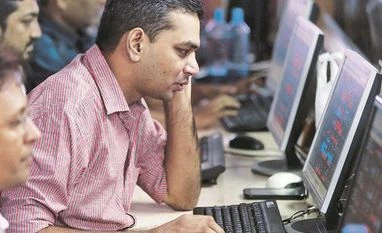The stock of pump & motors maker fell below its previous low of Rs 475 touched on April 19, 2021. In the past one month, the stock has declined 20 per cent, when compared with a 7 per cent fall in the S&P BSE Sensex. The stock price of the company has almost halved or tanked 48 per cent from its 52-week high of Rs 910 registered on June 8, 2021.
SPIL’s major raw materials include steel, copper and aluminium, which are highly volatile to external market factors. The company’s raw material cost accounted for about 76 per cent of the 9MFY22 (April-December) revenues (FY21: 71 per cent), thereby having an adverse impact on the margins as a majority of this cannot be passed through due to the fixed-price nature of contracts.
However, the margin profile also benefits in the event the raw material prices decline. The price revisions for export, industrial and residential customers usually take place on a quarterly basis. During 1HFY22, the company imported only about 10 per cent of its raw materials. Therefore, SPIL does not have any hedging contracts in place and relies on natural hedge, the rating agency India Ratings & Research (Ind-Ra) in rating rationale on February 4, 2022 said.
SPIL has a well-diversified product portfolio finding application in agriculture, and residential & industrial sectors. During 9MFY22, the agriculture segment accounted for 65 per cent of revenues and the residential & industrial segment accounted for 18 per cent.
The company operates in over 120 countries and has established three overseas subsidiaries to cater to the demand in these regions. During 9MFY22, exports contributed about 17 per cent to the total revenues.
While earnings before interest, tax, depreciation and amortisation (ebitda) margins were below 9 per cent during 1HFY22 due to increasing raw material prices, the same improved to 10.2 per cent in 3QFY22 aggregating to 9.3 per cent during 9MFY22 (FY21: 15.3 per cent), given the stability in raw material cost and price hikes undertaken by the company.
Ind-Ra believes the company’s working capital cycle is likely to remain elongated over the medium term, given its high dependence on government orders under Kisan Urja Suraksha evam Utthaan Mahabhiyan (KUSUM). SPIL remains vulnerable to risks of delays in receipt of subsidies, which can impact its overall credit profile, the rating agency said.
To read the full story, Subscribe Now at just Rs 249 a month
Already a subscriber? Log in
Subscribe To BS Premium
₹249
Renews automatically
₹1699₹1999
Opt for auto renewal and save Rs. 300 Renews automatically
₹1999
What you get on BS Premium?
-
Unlock 30+ premium stories daily hand-picked by our editors, across devices on browser and app.
-
Pick your 5 favourite companies, get a daily email with all news updates on them.
Full access to our intuitive epaper - clip, save, share articles from any device; newspaper archives from 2006.
Preferential invites to Business Standard events.
Curated newsletters on markets, personal finance, policy & politics, start-ups, technology, and more.
Need More Information - write to us at assist@bsmail.in
)